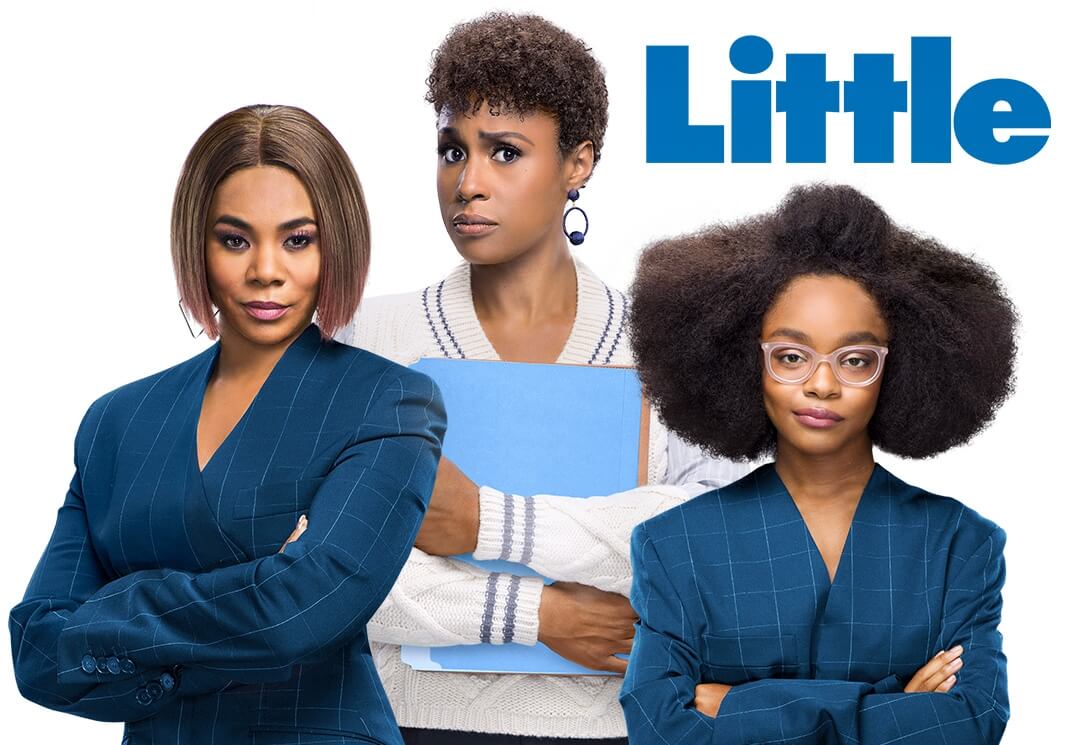Little Warren Leak - What Happened
The digital world, you know, sometimes throws us for a loop, and recently, there's been quite a bit of chatter about something called the little warren leak. It's a situation that has, in a way, gotten a lot of folks talking, especially those who spend time online and care about their personal information. This whole thing, it seems, points to some real concerns about how our private details are handled when we're just trying to enjoy or use various internet platforms.
This incident, which some are calling the "little warren" situation, apparently involves a platform that, for many, was a spot for creative content. But then, there was this rather unexpected turn where sensitive user data, so, it was accessed without permission and then shared. It's a story that, frankly, brings up a lot of important questions about security and who can get their hands on what.
As we look into what went down, it's pretty clear that this isn't just about one small event; it's more about the broader implications for everyone who uses online services. We're going to talk about what this "little warren" issue means, how it might affect people, and what we can, perhaps, learn from it all.
Table of Contents
- What Exactly Is The Little Warren Leak?
- How Did The Little Warren Leak Happen?
- What Kinds of Information Were Exposed in the Little Warren Leak?
- The Broader Meaning of 'Little' - Beyond the Leak
- How Does 'Little' Describe Things We See?
- What Are The Wider Effects of Data Breaches Like Little Warren's?
- Steps People Can Take After a Little Warren Type Leak
- Looking Ahead - Preventing Future Little Warren Leaks
What Exactly Is The Little Warren Leak?
The "little warren leak," as the talk goes, points to a situation where private user details from an online spot called "little.warren" got out without anyone's say-so. This means that information that should have been kept private, you know, was made public. It’s a bit like someone leaving a door open when they really should have kept it shut, letting things spill out that were meant to stay inside. This specific event has, in some respects, caused a good deal of concern among those who use online services, especially since it deals with things like personal accounts and records.
From what we can gather, this incident involved folks getting into the platform's protective walls. Once inside, they were able to get their hands on delicate data. This kind of thing, basically, is what we call a data breach, and it's a very serious matter for anyone whose details might have been involved. The news about "little.warren leaked" has, in fact, spread quite a bit across online groups, sparking many discussions about how safe our personal information truly is when we share it with websites and apps. It's a reminder that even places we trust can, sometimes, have their weak spots.
There's also been some talk about "little.warren_ undress ai," which seems to be a related part of this whole situation, perhaps pointing to specific kinds of content or data that were involved in the unauthorized sharing. And then, you know, there's the phrase "uncover the little warren water leak crisis," which sounds like a whole other kind of trouble, possibly an environmental problem. But for the most part, when people say "little warren leak," they're talking about the data getting out. It's all part of a bigger conversation about digital safety and what happens when that safety is, well, compromised.
How Did The Little Warren Leak Happen?
From the reports, it appears that folks with bad intentions managed to get past the protective measures that "little.warren" had put in place. This is often done by finding weak points in a system's defenses. Think of it like finding a tiny crack in a very strong wall; once you find that small opening, it might be possible to make it bigger and get through. These individuals, often called hackers, were able to break into the system, and that gave them a way to get at private user information. It’s a situation that, pretty much, highlights the constant back-and-forth between those who try to keep things safe and those who try to break in.
The exact steps they took to get in are not always made public, for obvious reasons, but it generally involves clever ways of tricking the system or finding errors in its setup. Once they were inside, they could then gain access to information that was meant to be kept hidden. This kind of event, you know, often serves as a wake-up call for online services to look very carefully at their protective systems and make them even stronger. It's a continuous effort to stay one step ahead of those who wish to cause trouble. So, the "little warren leak" happened because someone found a way around the digital locks.
It's not just about getting in, though; it's also about what happens next. Once the bad actors had access, they then exposed or shared the user data. This act of exposure is what really makes it a "leak." It's not just that they saw the information; they made it available to others who shouldn't have seen it. This is why, in a way, such incidents cause so much worry. The idea that your private details could be out there for anyone to see is, understandably, quite unsettling for many people who use these kinds of platforms. It’s a very serious violation of trust.
What Kinds of Information Were Exposed in the Little Warren Leak?
When we talk about what was exposed in the "little warren leak," the reports suggest it was user data that was considered sensitive. This can mean a lot of different things, depending on what kind of details the platform collected from its users. Generally speaking, sensitive information could include things like names, email addresses, perhaps even dates of birth, or other identifying details that people provide when they sign up for an online service. It’s the sort of stuff that, you know, helps make up your digital identity.
Sometimes, these leaks can also involve more personal things, like messages, photos, or even financial details if the platform handled transactions. The source text mentions "sensitive information of millions," which suggests a rather large number of people might have had their details affected. This is why, you know, such events are so concerning. The broader implications of having these kinds of personal records out in the open can be quite far-reaching, leading to all sorts of issues for the people involved. It's a situation that, basically, makes you think twice about what you share online.
The unauthorized release of this kind of information can put people at risk for things like identity theft or unwanted contact. It's not just about the immediate privacy invasion; it's also about the potential for future problems that might arise from these details being available. The mention of "little.warren / little.warren_ undress ai" could, perhaps, hint at certain types of content or user-generated material that were part of the exposure, adding another layer to the sensitivity of the data involved. So, it's a pretty serious situation when such personal bits of information are no longer private.
The Broader Meaning of 'Little' - Beyond the Leak
It's interesting to note that the word "little" itself has many different uses, far beyond just being part of the "little warren leak" discussion. When we say something is "little," we often mean it's not big in size. For example, you might say, "This is a little table," to describe a piece of furniture that doesn't take up much space. Or, you know, if you're talking about distance, you might say, "It's only a little way now," meaning the destination isn't far off. This simple word, in some respects, paints a picture of something small or not large in its physical presence.
"Little" can also refer to a short period of time. You might say, "I'll be there in a little while," meaning you'll arrive soon, not after a long wait. It describes something that is short in how long it lasts. And then, there's the idea of a small amount of something. If you have "a little food or drink," it means you don't have a large portion. Or, if someone gives you "a present that is not of great" value, it might be described as a little present. So, this word, you see, is quite flexible in how it describes quantity and duration.
The way we use "little" can also change depending on what other words are around it. You can use words like "so," "too," and "very" right before "little" to give it more emphasis. For instance, "It's so little" can mean it's extremely small. This word also has different forms for comparing things: "less" or "lesser" for comparing two things, and "least" or "littlest" for comparing more than two. It’s a very common word, and its meaning can shift quite a bit depending on the situation, showing how rich our everyday language can be, basically.
How Does 'Little' Describe Things We See?
The word "little" also pops up in the name of a movie, which is a different kind of "little" entirely from the "little warren leak." This film, called "Little," stars Regina Hall, Issa Rae, and Marsai Martin. The story, you know, is about a woman who finds herself turned back into her younger self. This happens at a point in her life when she's facing a lot of pressure, and it leads to all sorts of interesting situations. So, in this case, "little" refers to a person being small in age, or rather, returning to a younger state. It’s a pretty fun take on the idea of being small.
The movie's plot follows an overbearing boss who gets transformed into her younger self. This transformation, you see, means she goes from being an adult in charge to being a child again. It's a creative way to explore the idea of being "little" – not just in size, but in age and experience. This shows how a single word can have many different meanings and applications, depending on the context. It’s quite a contrast to the serious nature of a data breach like the "little warren leak," illustrating the wide range of what "little" can point to.
So, when we hear "little," our minds might go to a small object, a short time, a tiny amount, or even a movie about someone becoming young again. Each use, you know, carries its own specific meaning. The sheer number of ways "little" can be used, with "50 meanings listed in OED's entry," shows just how versatile this word is in our daily talk. It’s a good reminder that words can hold many different ideas, and it's always worth thinking about the context to truly grasp what's being said, especially when we talk about things like the "little warren leak" versus a "little" movie.
What Are The Wider Effects of Data Breaches Like Little Warren's?
When a data breach like the "little warren leak" happens, the effects can spread out quite a bit, affecting more than just the immediate people involved. For individuals whose personal information has been exposed, there's a good chance they might face things like identity theft. This is where someone uses your details to pretend to be you, perhaps to open new accounts, make purchases, or even apply for credit. It’s a very unsettling prospect, and it can take a lot of effort to sort out if it happens to you, basically.
Beyond the direct impact on individuals, these kinds of incidents can also shake public trust in online services. When a platform that people use for creative content or other activities experiences a security failure, it makes everyone wonder how safe their information is with other companies too. This can lead to people being more hesitant to share their details online, or even stopping using certain services altogether. It’s a ripple effect that, you know, can harm the reputation of many digital businesses, not just the one that had the leak.
There are also financial costs involved. The company that experiences the leak, like "little.warren," might have to spend a lot of money to fix their security systems, inform affected users, and deal with any legal issues that come up. There might be fines from regulators, too, depending on how strict the privacy rules are in different places. So, a data breach isn't just about the data itself; it's about the financial burden, the loss of trust, and the overall disruption it causes. It's a pretty big deal for everyone involved, in a way.
Steps People Can Take After a Little Warren Type Leak
If you find out your information might have been part of a situation like the "little warren leak," there are some sensible things you can do to protect yourself. First off, it's a good idea to change your passwords for the affected service, and any other online accounts where you might have used the same password. Using a unique, strong password for each account is, you know, a very important step. This makes it harder for bad actors to get into other parts of your digital life if one password gets out.
Next, keep a close eye on your financial statements and credit reports. Look for any unusual activity or transactions you don't recognize. If you spot anything strange, report it to your bank or credit card company right away. Many credit reporting agencies also offer services that can help you monitor your credit for signs of fraud. Taking these steps can, basically, help you catch any problems early on before they become bigger issues. It’s about being proactive, you know, in protecting your financial well-being.
It's also worth being extra careful about emails or messages that seem to be from the affected company or other services, especially if they ask for personal information. These could be phishing attempts, where scammers try to trick you into giving them more of your details. Always go directly to the official website or contact the company through a known, safe number if you have concerns. Being a little bit skeptical of unexpected requests can, in fact, save you from further trouble. It’s a good habit to develop in this digital age.
Looking Ahead - Preventing Future Little Warren Leaks
To prevent future incidents similar to the "little warren leak," online platforms and services need to put a lot of effort into making their security systems stronger. This means regularly checking for weak spots, updating their software, and making sure all user data is protected with the best available methods. It's a continuous process, not a one-time fix. Companies, you know, have a big responsibility to keep the information their users trust them with safe and sound. It’s a very important part of doing business online today.
For users, there's also a role to play in staying safe. Using strong, unique passwords for all your accounts is a simple yet powerful step. Turning on two-factor authentication whenever it's offered adds another layer of security, making it much harder for unauthorized people to get into your accounts, even if they have your password. Being aware of phishing scams and thinking twice before clicking on suspicious links can also help a lot. It’s about being a bit more aware of the digital world around you, basically.
The discussions sparked by events like the "little warren leak" are, in a way, helpful because they bring these security issues to light. They remind everyone – both companies and individuals – about the importance of digital safety. As technology keeps changing, so too do the ways that information can be put at risk. So, staying informed and taking steps to protect your own details is always a good idea. It's a shared effort to make the online world a safer place for everyone who uses it, you know.

Little | Universal Pictures

Little: Official Clip - Middle School Makeover - Trailers & Videos

Little | Universal Pictures